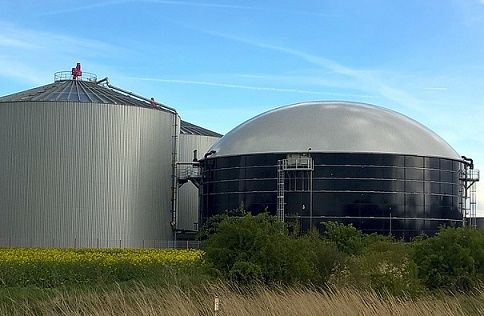Biogas is taking off in leaps and bounds in Denmark. In July this year, it accounted for 18.6 percent of all the gas used in Denmark and that is an increase of 50 percent compared to last year, reports DR Nyheder.
Figures from the Danish state company Energinet, which owns and runs the gas network, also reveal that this is a European record – no other countries are as advanced when it comes to getting biogas onto the energy network and out to consumers.
Biogas is considered a green energy source that can be used to reduce CO2 emissions. “It is important, as we are facing a massive switchover in our energy system: a switchover to find a system that emits a net amount of zero CO2 in 2050,” said Energinet’s regional head, Jeppe Danø.
A green gas with a bonus
“Biogas is the start of the massive green switchover in the gas system and the entire energy sector that we have set in motion, and the amount of biogas will increase over the next few years up until 2030 when other green types of gas will come in,” added Danø.
Biogas is made from organic waste and animal manure that is warmed up in a tank. In addition to gas being produced, there is also organic material that can be used as fertiliser. This has the advantage that it does not contain gases such as methane, so it smells less, is better for the environment and has a higher nutritional value than just using manure on the fields.
Energy consumption largely unchanged
New figures released by the Energistyrelsen energy agency show that energy use in Denmark is more or less unchanged for the first six months of 2018 compared to the same period last year. There was a marginal increase of 0.1 percent. Consumption of natural gas, oil and renewables fell by 2.5 percent, 1 percent and 0.7 percent respectively but coal usage increased by 2.4 percent. Over the six-month period, Denmark imported a net amount of 7,058 TJ of electricity, equating to 11.3 percent of the total Danish electricity supply. As previously reported, there has been an increase in the amount of electricity generated through solar panels.
Government beefs up climate expenditure
As part of the new budget proposals, the government intends to increase the annual amount available for global climate-related initiatives to 540 million kroner in 2019. The funds are used to help developing countries reduce their greenhouse gas emissions and adjust to climate change. This is done by helping them to become more efficient on the energy front and to steer their energy production towards more renewables. “Through the 540 million kroner the Danes are giving a massive contribution towards achieving the goals of the Paris Agreement and ensuring that the energy systems of developing countries become more sustainable,” said the development minister, Ulla Tørnæs.
More aid to Africa
Another initiative in the government’s new budge proposals for 2019 is the setting aside of 0.7 percent of GNP (around 16,400 million kroner) for development aid, with a further 183 million kroner as an adjustment in aid funding levels. The money has been found because of healthy economic growth in the Danish economy and reduced expenditure in connection with receiving refugees in Denmark as numbers have fallen. “I’m happy that the government’s strict immigration policy is working. That means we can spend less on Danish refugee centres and instead invest the money in sustainable development in some of the world’s poorest countries to give people hope for the future where they live,” said the development minister, Ulla Tørnæs. One of the central planks of the initiative is coping with large numbers of migrants and tackling the problem at its source. The government has set aside 1.72 billion kroner for bilateral programs in Africa during 2019 and an extra 75 million kroner through the European Fund for Sustainable Development.











